ACETAMINOPHEN/ANTIHISTAMINE - ORAL
PHONETIC PRONUNCIATION:
GENERIC NAME(S): acetaminophen/chlorpheniramine maleate
Uses
USES: This combination product contains 2 medications, acetaminophen and an antihistamine. Acetaminophen helps to reduce fever and/or mild to moderate pain (such as headache, backache, aches/pains due to muscle strain, cold, or flu). The antihistamine in this product may cause drowsiness, and therefore it can also be used as a nighttime sleep aid. Antihistamines can also be used to help relieve allergy or cold symptoms such as watery eyes, itchy eyes/nose/throat, runny nose, and sneezing. Cough-and-cold products have not been shown to be safe or effective in children younger than 6 years. Therefore, do not use this product to treat cold symptoms in children younger than 6 years unless specifically directed by the doctor. Some products (such as long-acting tablets/capsules) are not recommended for use in children younger than 12 years. Ask your doctor or pharmacist for more details about using your product safely. These products do not cure or shorten the length of the common cold and may cause serious side effects. To decrease the risk for serious side effects, carefully follow all dosage directions. Do not use this product to make a child sleepy. Do not give other cough-and-cold medication that might contain the same or similar ingredients (see also Drug Interactions section). Ask the doctor or pharmacist about other ways to relieve cough and cold symptoms (such as drinking enough fluids, using a humidifier or saline nose drops/spray).
How to use ACETAMINOPHEN/ANTIHISTAMINE - ORAL
HOW TO USE: See also Warning section. If you are taking an over-the-counter product, read all directions on the product package before taking this medication. If you have any questions, consult your pharmacist. If your doctor has prescribed this medication, take it as directed. Take this medication by mouth with or without food or as directed by your doctor. If stomach upset occurs, you may take this medication with food or milk. If you are using the liquid form, carefully measure your prescribed dose using a medication-measuring device or spoon. Do not use a household spoon because you may not get the correct dose. If you are taking extended-release capsules, swallow them whole. Do not crush or chew extended-release capsules or tablets. Doing so can release all of the drug at once, increasing the risk of side effects. Also, do not split extended-release tablets unless they have a score line and your doctor or pharmacist tells you to do so. Swallow the whole or split tablet without crushing or chewing. The dosage is based on your medical condition and response to treatment. Pain medications work best if they are used as the first signs of pain occur. If you wait until the symptoms have worsened, the medication may not work as well. Do not take this product for pain more than 10 days (adults) or 5 days (children) unless directed by a doctor. Do not take this product for fever more than 3 days unless directed by your doctor. If your condition persists or worsens, or if you think you may have a serious medical problem, seek immediate medical attention.
Side Effects
Precautions
Interactions
Overdose
Images
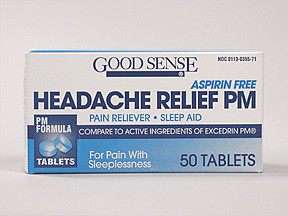
- color
- light blue
- shape
- round
- imprint
- L355, PM
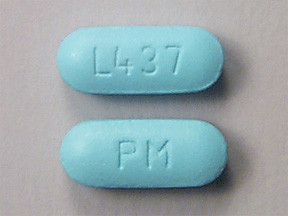
- color
- light blue
- shape
- oblong
- imprint
- L437, PM
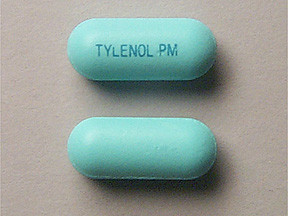
- color
- blue
- shape
- oblong
- imprint
- TYLENOL PM
Reviews
Faq for ACETAMINOPHEN/ANTIHISTAMINE - ORAL
- Acetaminophen/Antihistamine oral medication is commonly used to relieve symptoms associated with allergies, such as runny nose, sneezing, itching, and watery eyes. It also helps to reduce fever and relieve mild to moderate pain.
- Acetaminophen is a pain reliever and fever reducer while antihistamines block the effects of histamine, a substance that causes allergic symptoms.
- Common side effects may include drowsiness, dizziness, dry mouth, blurred vision, constipation, or upset stomach. If any of these symptoms persist or worsen, it is advisable to consult a healthcare professional.
- It is important to consult a healthcare professional or pharmacist before taking Acetaminophen/Antihistamine oral medication with other medications as it can interact with certain drugs, including sedatives, tranquilizers, other antihistamines, and certain antidepressants.
- It is not recommended to consume alcohol while taking Acetaminophen/Antihistamine oral medication as it can increase the risk of liver damage.
- The dosage and frequency of Acetaminophen/Antihistamine oral medication should be followed as directed by a healthcare professional or as indicated on the product packaging. It is important not to exceed the recommended dose or use it for a prolonged period without medical advice.
- The use of Acetaminophen/Antihistamine oral medication in children should be discussed with a pediatrician. The dosage and safety for children may vary based on age and weight.
- Accidental overdose can be hazardous, especially for acetaminophen. Immediate medical attention should be sought in case of an overdose, even if there are no symptoms, as it can cause serious liver damage.
- It is important to inform your healthcare professional about any medical conditions or allergies you have before taking Acetaminophen/Antihistamine oral medication. Additionally, certain medical conditions such as liver disease and asthma may require specific precautions or alternative treatments.
Warning
WARNING: One ingredient in this product is acetaminophen. Taking too much acetaminophen may cause serious (possibly fatal) liver disease. Adults should not take more than 4000 milligrams (4 grams) of acetaminophen a day. People with liver problems and children should take less acetaminophen. Ask your doctor or pharmacist how much acetaminophen is safe to take. Do not use with any other drug containing acetaminophen without asking your doctor or pharmacist first. Acetaminophen is in many nonprescription and prescription medications (such as pain/fever drugs or cough-and-cold products). Check the labels on all your medicines to see if they contain acetaminophen, and ask your pharmacist if you are unsure. Get medical help right away if you take too much acetaminophen (overdose), even if you feel well. Overdose symptoms may include nausea, vomiting, loss of appetite, sweating, stomach/abdominal pain, extreme tiredness, yellowing eyes/skin, and dark urine. Daily alcohol use, especially when combined with acetaminophen, may damage your liver. Avoid alcohol.
Disclaimer
IMPORTANT: HOW TO USE THIS INFORMATION: This is a summary and does NOT have all possible information about this product. This information does not assure that this product is safe, effective, or appropriate for you. This information is not individual medical advice and does not substitute for the advice of your health care professional. Always ask your health care professional for complete information about this product and your specific health needs.
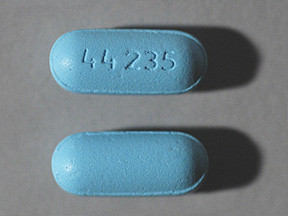

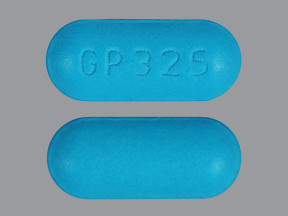

No Reviews Yet